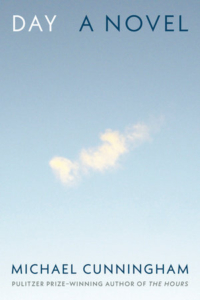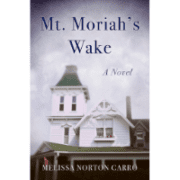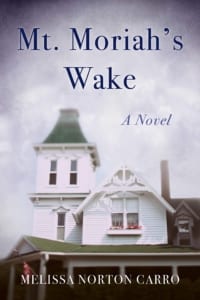Witness: Stories by Jamel Brinkly
This review originally appeared in the New York Review of Books.
 A collection of ten short stories set in Brooklyn, NY, Witness: Stories is populated by characters navigating relationships with friends and family, both living and not. The title is that of the final story in the collection, emphasizing the act of witnessing, although personal and subjective, is a human responsibility.
A collection of ten short stories set in Brooklyn, NY, Witness: Stories is populated by characters navigating relationships with friends and family, both living and not. The title is that of the final story in the collection, emphasizing the act of witnessing, although personal and subjective, is a human responsibility.
Brinkley’s characters struggle in a hazy present where gentrification, workplace bias, and police injustice color their days. However, their inner wounds stem from family members or a family member being absent or increasingly unrecognizable. In the opening story, “Blessed Deliverance” a group of white people set up an organization for rescued rabbits in the park with a neighborhood homeless man as lead volunteer. The teen protagonist and his gang of friends are amused by the many levels of absurdity surrounding this enterprise.
In “Comfort,” a woman’s brother is murdered years earlier by a white police officer, an incident she plays over repeatedly in her mind, including the implausible explanation given by the policeman at trial. Simone is having a challenge managing her present day while in dialogue with the deceased. Many of the stories in Witness feature ghosts, implying that much of what one witnesses is inexplicable. In Brinkley’s collection, witnessing is highly experiential, involving more than simply sight.
Teenage characters bear the burden of their parents and parents bear the burden of their children. Embarrassment, shame, and regret swirl about these works, an in the very oxygen the characters breath. In “The Let Out” a young man is pursued by his father’s ex-lover, a woman who, he comes to understand, was, even in her absence, a significant member of his family. In “Bystander,” Anita and her daughter are in a devastating battle of wills that has Anita denying she even has a daughter to a homeless bystander-prophetess in Prospect Park.
The opening lines in “That Particular Sunday” exemplify Brinkley’s characterizations of the familial:
“There are times when a family has an aura of completion. Remembering such a time feels like gazing at a masterpiece in an art gallery. You might find yourself taking one or two steps backward to absorb the harmonious perfection of the entire image. Or you may be lured by it, drawn to it, inching closer to study every fine detail of composition, the faultless poise with which each element confirms the necessary presence of the others. Take the figure of the son, who hurtles into the foreground of the picture, claiming his position in a web of femaleness, affixing himself to the very center of its adhesive heart, because he belongs there, or so he believes with the unblemished certainty of a boy’s imagination. Like everything else in the image, he never changes. Yes, that is my mother, his presence announces. And those are my aunts, he seems to say. And this- of the girl closest to him, her expression as breathless as his own—this is my cousin. My companion. My closest friend. Her soul is the identical twin of mine . . . They belong to a different elsewhere, a time yet to come, with another father to come, and the circumstances of their lives will frenzy the family, purpling it, cloying it until it is spoiled. Then it will be no different from any ordinary clan. Unpleasant to regard. An eyesore.”
Indeed, Brinkley’s stories insert the reader at the time the family is in frenzy, or just afterward, with characters mourning horrific losses—murders, or death by terrible accident such as being struck by a train, even mourning the absence of family members they were never told about. The stories place us in a setting that is in flux as well, one narrator stating, “We lived in the neighborhood before it was a real estate agent’s dream.” Sure, the stories are peppered with references to gentrification, but they act as a surface layer of disturbance put upon characters who have many deeper troubles.
In the culminating story, “Witness” a fist-person narrator Silas sleeps on his sister, Bernice’s, couch while looking for a job and an apartment. Bernice is not well, suffering an undiagnosed illness, with no help from white doctors. She recalls their mother’s warnings, “When it comes to those white doctors,” Bernice cried, imitating their mother, “always, always, exaggerate the pain.”
Bernice dates and marries a DJ, adding one more person to squeeze into the small apartment as she becomes increasingly sick and eventually dies. Of all the relationships of which Brinkley writes in this collection, those between siblings, although never perfect, are expressed with a degree of tenderness that is moving. His siblings need each other more than they need parents. They are, after all, of the same generation and conspirators in life, in the act of survival, as well as in the human burden of bearing witness.

About Witness:
What does it mean to really see the world around you—to bear witness? And what does it cost us, both to see and not to see?
In these ten stories, each set in the changing landscapes of contemporary New York City, a range of characters—from children to grandmothers to ghosts—live through the responsibility of perceiving and the moral challenge of speaking up or taking action. Though they strive to connect with, stand up for, care for, and remember one another, they often fall short, and the structures they build around these ambitions and failures shape their futures as well as the legacies and prospects of their communities and their city.
In its portraits of families and friendships lost and found, the paradox of intimacy, the long shadow of grief, and the meaning of home, Witness enacts its own testimony. Here is a world where fortunes can be made and stolen in just a few generations, where strangers might sometimes show kindness while those we trust–doctors, employers, siblings–too often turn away, where joy comes in snatches: flowers on a windowsill, dancing in the street, glimpsing your purpose, change on the horizon.
With prose as upendingly beautiful as it is artfully, seamlessly crafted, Jamel Brinkley offers nothing less than the full scope of life and death and change in the great, unending drama of the city.
Read more of Jeannie’s Reviews on her blog, on Goodreads or StoryGraph, or on the New York Journal of Books. For more TBR inspiration, check out Jeannie’s curated book lists at Bookshop.org.







 It’s probably not a surprise that the plot of
It’s probably not a surprise that the plot of  Betsabé writes of a tumultuous year, graduating from college, starting a job on Wall Street, and falling in love with her powerful boss. While the onset of the COVID would provide convenient subterfuge for her affair with David, it would also usher in the undoing of so much more. Ultimately Betsabé is broken open and forced to trust her own innate wisdom and the teachings of her family.
Betsabé writes of a tumultuous year, graduating from college, starting a job on Wall Street, and falling in love with her powerful boss. While the onset of the COVID would provide convenient subterfuge for her affair with David, it would also usher in the undoing of so much more. Ultimately Betsabé is broken open and forced to trust her own innate wisdom and the teachings of her family.





 In other news … John and I have bundled our passions for food, wellness, and the environment into a new venture called
In other news … John and I have bundled our passions for food, wellness, and the environment into a new venture called  That’s all my exciting news for the moment, but stay tuned for updates. In the meanwhile, let me leave you with some books I’ve read this winter and highly recommend:
That’s all my exciting news for the moment, but stay tuned for updates. In the meanwhile, let me leave you with some books I’ve read this winter and highly recommend:
 A collection of ten short stories set in Brooklyn, NY,
A collection of ten short stories set in Brooklyn, NY,

 Melissa Carro has written a stunning debut about trauma and loss and persevering love. She has created a compelling protagonist in JoAnna Wilson, haunted by ghosts of her past, terribly flawed, yet ever so sympathetic. The story of Mt Moriah’s Wake unfolds masterfully, alternating timelines in a way that had me eagerly reading on to the final, most satisfying plot twist. I love the way Carro rendered heartache, misunderstanding, love, and the all-around messiness of human relationships. This is a beautiful novel about returning home and the power of place to both repel and attract. It offered an inspiring message of hope and healing that I won’t soon forget.
Melissa Carro has written a stunning debut about trauma and loss and persevering love. She has created a compelling protagonist in JoAnna Wilson, haunted by ghosts of her past, terribly flawed, yet ever so sympathetic. The story of Mt Moriah’s Wake unfolds masterfully, alternating timelines in a way that had me eagerly reading on to the final, most satisfying plot twist. I love the way Carro rendered heartache, misunderstanding, love, and the all-around messiness of human relationships. This is a beautiful novel about returning home and the power of place to both repel and attract. It offered an inspiring message of hope and healing that I won’t soon forget.